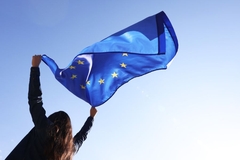EU-US trade tensions: Beauty giant stocks jolt amid tariff uncertainty

US President Donald Trump’s initial threat to impose 50% tariffs on EU imports sent L’Oréal and LVMH stocks falling, but a last-minute delay has offered temporary relief. EU personal care exports worth a reported US$10.5 billion are at risk of becoming collateral as transatlantic trade tensions remain high and the EU threatens retaliatory measures.
The tariffs against the EU were set to take effect on June 1 this year and caused market volatility. Shares of French conglomerates LVMH and L’Oréal dropped by 3% and 2%, respectively, reflecting investor concern over the industry’s heavy reliance on the US market.
Almost a quarter of L’Oréal’s global revenue in 2024 (US$47.83 billion) came from the US market (US$11 billion).
However, following a phone call earlier this week with European Commission President Ursula von der Leyen, Trump has agreed to postpone the tariff implementation until July 9, providing a window for renewed negotiations.
“We want a fair deal for American workers and businesses. The extension gives our negotiators more room to get the right outcome,” says Trump.
The delay sparked a wave of cautious optimism across financial markets. On May 27, the Dow surged by 740 points (1.8%), the S&P 500 rose 2.1%, and the Nasdaq Composite climbed 2.5%.
While markets may be stabilizing for now, the beauty industry remains braced for impact.
According to the UN Comtrade database, the EU exported US$10.47 billion worth of cosmetics, toiletries, perfumes, and essential oils to the US in 2024, with France contributing €2.5 billion (US$ 2.83 billion) annually.
The French Cosmetic Industry Association (FEBEA) has called for a swift, balanced agreement. “We remain calm and trust European negotiators to quickly conclude an EU-US agreement, as this is, above all, a European issue. The American market is our largest export market outside the EU,” FEBEA states.
.jpg) Personal care exports worth US$10.47 billion are in the crossfire between EU–US trade talks.Meanwhile, Beiersdorf’s CEO has warned that retaliatory EU tariffs on American beauty products would be “shooting ourselves in the foot.”
Personal care exports worth US$10.47 billion are in the crossfire between EU–US trade talks.Meanwhile, Beiersdorf’s CEO has warned that retaliatory EU tariffs on American beauty products would be “shooting ourselves in the foot.”
A fragile pause
According to Trump and von der Leyen, the delay is meant to give negotiators more time to reach a deal and avoid immediate economic fallout.
The buffer, however, does not reflect a softening of Trump’s rhetoric. Just days before the extension, he stated that talks with the EU were “going nowhere” and accused the Union of “taking advantage” of the US economy.
The EU’s €95 billion (US$107.64 billion) retaliation package remains on the table. However, the union chose not to activate its countermeasures immediately. Instead, it announced a 90-day delay, meaning it will wait until five days after Trump’s extended deadline, July 14, before imposing any tariffs of its own. In doing so, Brussels headquarters leaves room for negotiations while signaling it is ready to escalate if talks fail.
The draft list includes a range of American exports, including personal care items such as shampoos, sunscreens, perfumes, and makeup — leveraging these products as bargaining chips in the negotiations.
However, European beauty leaders remain concerned about next steps. Beiersdorf’s CEO, Vincent Warnery, has cautioned that retaliating with tariffs on cosmetics could backfire economically.
“We’ll raise prices in the US if needed, which will hurt consumers in the US and Canada and will also hurt our market share,” he told the Financial Times. “So leave us out of it, enjoy what we bring to the economy, and don’t start a fire where there is no need.”
.jpg) LVMH and L’Oréal stock prices remain volatile as the tariff delay offers temporary relief.Call for exemption
LVMH and L’Oréal stock prices remain volatile as the tariff delay offers temporary relief.Call for exemption
The Value of Beauty Alliance, a coalition of 16 major European beauty and personal care companies, responded to rising trade tensions. Members, including L’Oréal, Beiersdorf, Givaudan, and IFF, are urging the EU to exclude American cosmetics from its retaliation list.
“Our hope is that retaliatory measures do not escalate,” a Beiersdorf spokesperson recently told Personal Care Insights. “Europe is a world leader in cosmetics and personal care. Five of the top seven industry players are European — the other two are American.”
“Putting beauty and cosmetics on the European retaliation list would be a very bad idea, so it is a high preoccupation for all the Value of Beauty Alliance CEOs.”












